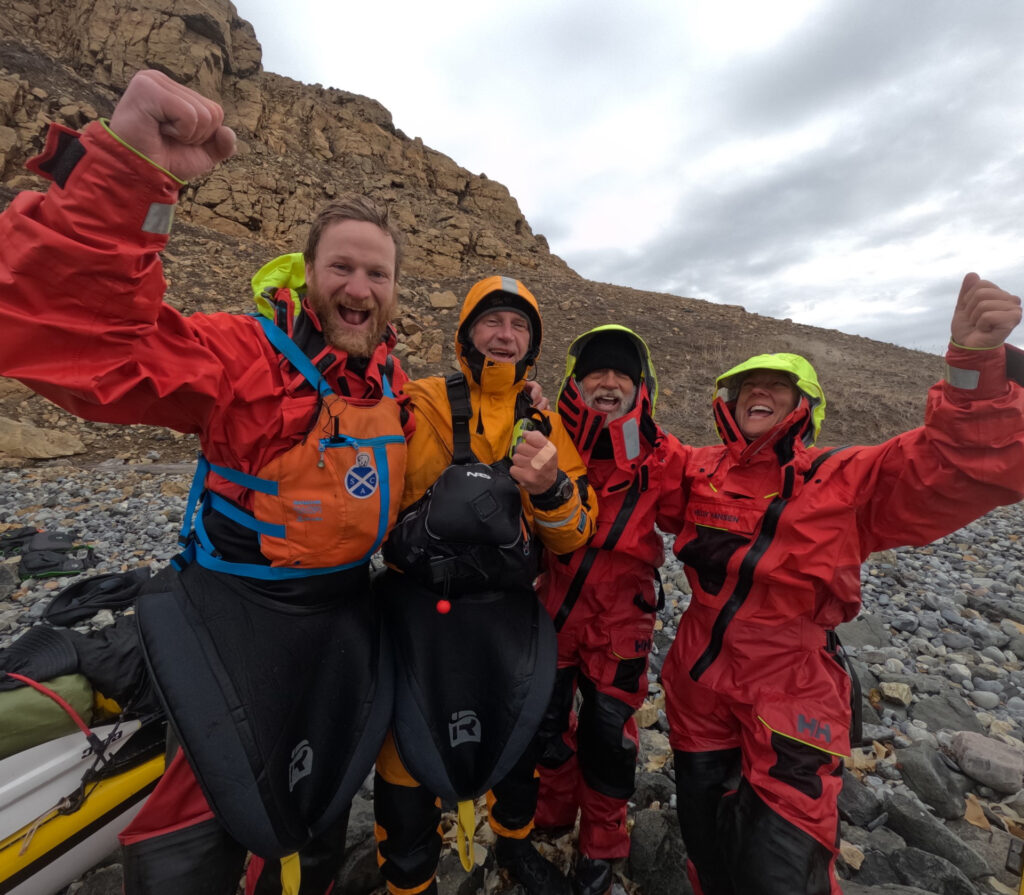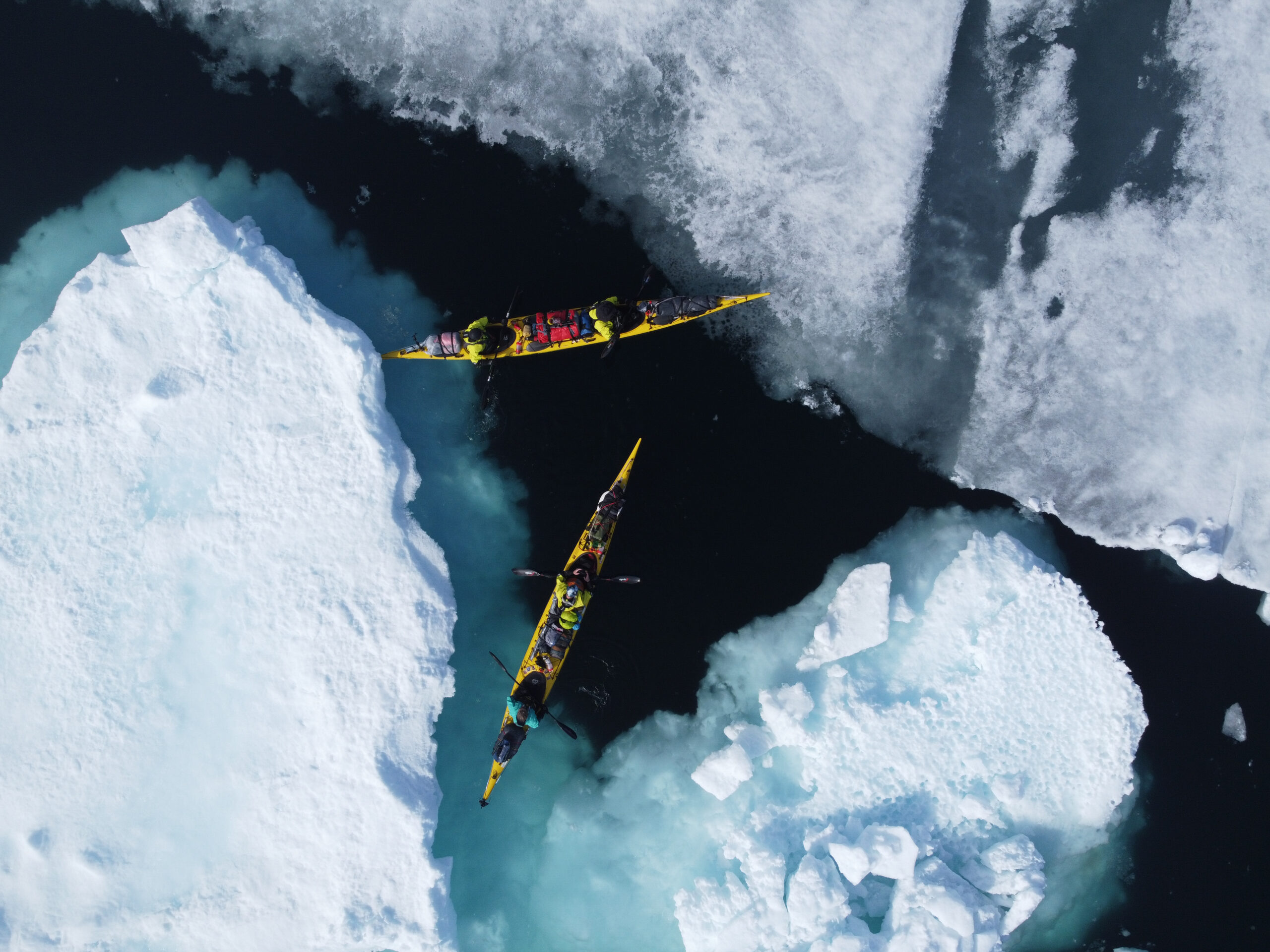A St. Lawrence University biology professor just became the first person who — along with three teammates — kayaked the Northwest Passage of the Arctic Ocean in one season. Eileen Visser returned to campus to teach on Oct. 13, just days after she finished the 104-day journey from Greenland’s Baffin Bay to the Bering Sea.
Visser is a hardcore endurance paddler. She has competed in 13 Adirondack 90-miler races and holds several first-place and record-breaking titles. She built her own kayak and raced the Yukon River Quest in 2018, breaking the record for fastest woman racer. Visser is also from Valdez, Alaska, so the North has always felt like home to her. “I grew up in Alaska in a tiny little cabin, no road, no running water,” she explained. “So, whenever I read anything about the Arctic and the Northwest Passage and like the big exploration, my ears perk up.”
Visser’s ears perked up when she heard that two kayakers from Texas, West Hansen and Jeff Wueste, were putting together a bigger team for their third attempt at the Northwest Passage. Even though she did not have the NWP on her paddling bucket list, she thought it wouldn’t hurt to throw her hat in the ring. “The idea of the north was appealing enough that when I saw they were filling a team, I did it,” she said.
After submitting a paddling resume and interviewing with Wueste and Hansen, who call themselves the Arctic Cowboys, all that was left to do was wait. Despite her qualifications and the thoughtfulness of her application, Visser could not let herself imagine she would actually get the position. “I just figured, you know, I’m nobody from nowhere,” she said. By the Tuesday after she applied, she was so convinced she had not been chosen that she sent an email to the Arctic Cowboys accepting her rejection. “Immediately, I got back, ‘Oh no, you’re at the top of our list. Sorry we haven’t gotten back to you!’”
The original Arctic Cowboys, plus Visser and Mark Agnew, an outdoorsman from Scotland, began their almost 2000-mile expedition on July 8 after a two-week delay due to ice buildup. Throughout the journey, the team was faced with challenges such as paddling through massive breakers, water shortages, group dynamic tensions, and getting their camp raided by a polar bear. Eileen believes that these hardships were what made the trip so valuable. “Looking back, it’s like, oh yeah, that was pretty dangerous. And yet when you’re there, I never had this like, I’m freaking out moment,” she said. “You’ve got to take action, you got to be present, you’ve got to do stuff.”
Visser feels very grateful for her unique experience of living in immersion with nature on the NWP. “That’s one of the things that’s a privilege. Anytime I go in nature, I do feel like you get to feel small in some way,” she said. “You get to feel like you’re a part of a big whole that doesn’t depend on you.”

Along with gratitude, Visser feels sad about the climate change that caused melting in the Arctic that made it possible for her team to paddle the passage without getting blocked by sea ice. “You’re like, oh yeah, this shouldn’t be like this. The flow edge shouldn’t be this far back.”
Jon Rosales, a professor of environmental studies at St. Lawrence University and an Arctic climate researcher, says that the main reason the Arctic is melting so fast is the albedo changes that are caused by already melting ice. “You’re going from a white environment to a dark blue or gray ocean environment.” Darker-colored surfaces absorb heat while lighter-colored surfaces reflect it, so as the ice melts and reveals dark sediment trapped inside it, the melting time accelerates. “We call it Arctic amplification,” he said.
According to Kearney Coupland, a professor of environmental studies at SLU and social scientist for the community of Tuktoyaktuk in northern Canada, the effects of Arctic climate change on human populations will be dependent on communities’ abilities to adapt. “Adaptation can bring opportunities like kayaking in places where we haven’t kayaked before, but so much of it is about adapting, and that’s easier for some people than others.”



